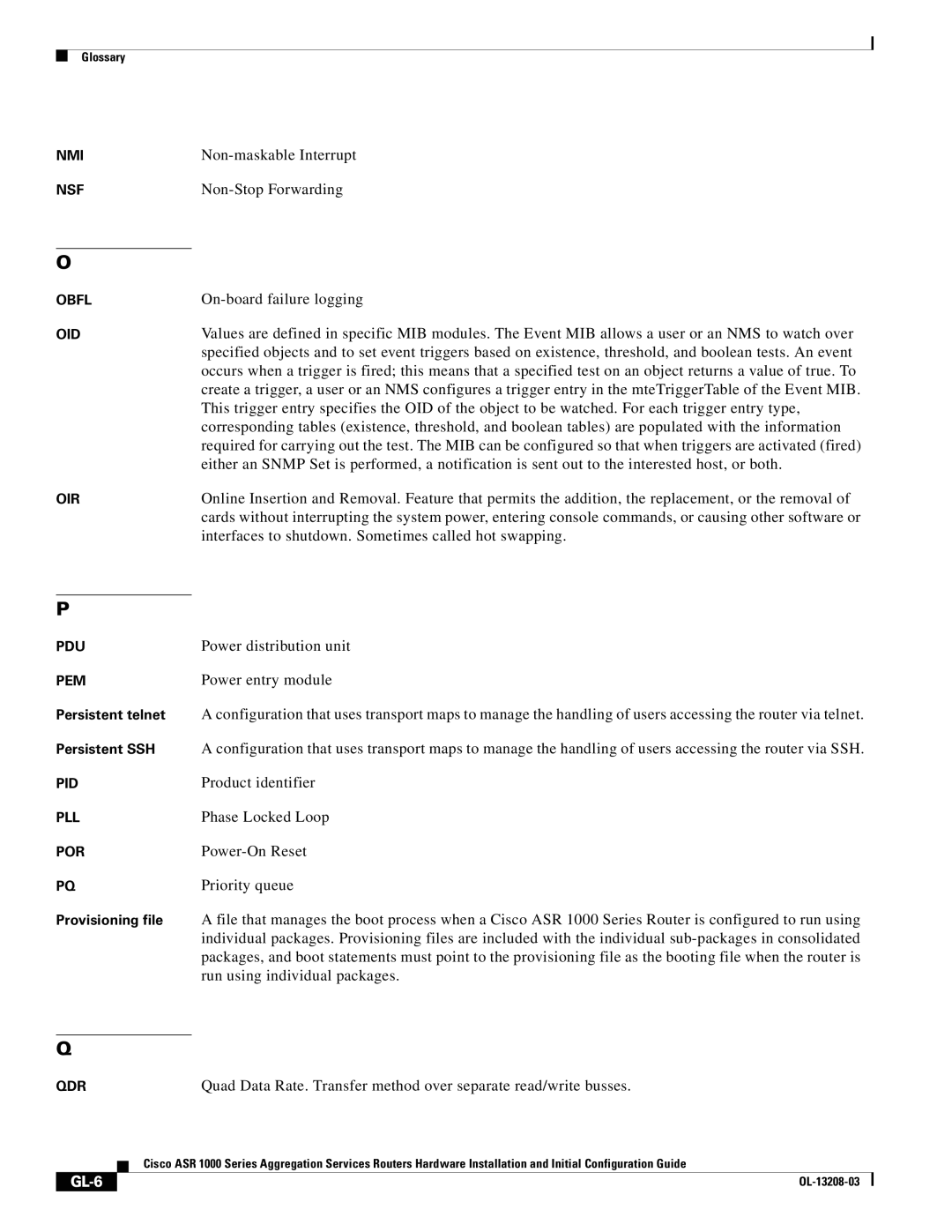
Glossary
NMI
NSF
O
OBFL
OID
OIR
Values are defined in specific MIB modules. The Event MIB allows a user or an NMS to watch over specified objects and to set event triggers based on existence, threshold, and boolean tests. An event occurs when a trigger is fired; this means that a specified test on an object returns a value of true. To create a trigger, a user or an NMS configures a trigger entry in the mteTriggerTable of the Event MIB. This trigger entry specifies the OID of the object to be watched. For each trigger entry type, corresponding tables (existence, threshold, and boolean tables) are populated with the information required for carrying out the test. The MIB can be configured so that when triggers are activated (fired) either an SNMP Set is performed, a notification is sent out to the interested host, or both.
Online Insertion and Removal. Feature that permits the addition, the replacement, or the removal of cards without interrupting the system power, entering console commands, or causing other software or interfaces to shutdown. Sometimes called hot swapping.
P
PDU | Power distribution unit |
PEM | Power entry module |
Persistent telnet | A configuration that uses transport maps to manage the handling of users accessing the router via telnet. |
Persistent SSH | A configuration that uses transport maps to manage the handling of users accessing the router via SSH. |
PID | Product identifier |
PLL | Phase Locked Loop |
POR | |
PQ | Priority queue |
Provisioning file | A file that manages the boot process when a Cisco ASR 1000 Series Router is configured to run using |
| individual packages. Provisioning files are included with the individual |
| packages, and boot statements must point to the provisioning file as the booting file when the router is |
| run using individual packages. |
Q
QDR |
| Quad Data Rate. Transfer method over separate read/write busses. | ||
|
|
| Cisco ASR 1000 Series Aggregation Services Routers Hardware Installation and Initial Configuration Guide | |
|
|
| ||
|
|
|
|
|
|
|
| ||
